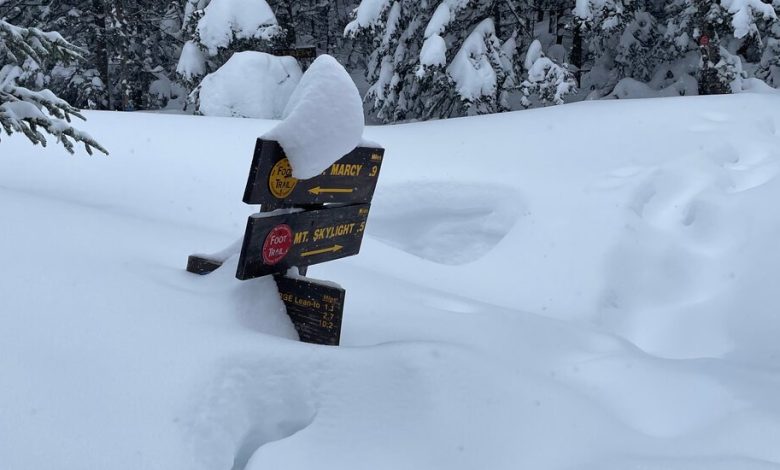A Hiker Was Lost in the Woods. Snow Was Falling. Time Was Running Out.

The woman’s call came around 9:45 on a Friday night.
Her son, a 33-year-old New York City man, had gone hiking in the Adirondack Mountains that March morning. He sent her a text message from the top of Mount Marcy at 12:45 p.m. but had not checked in since. Now, with up to 19 inches of snow forecast overnight and into the morning, she was worried. She called for help.
Robbi Mecus, a New York State forest ranger for 25 years, was at home when a dispatcher reached her. Many hikers who are late to return are not lost or in danger. The same woman had called three weeks earlier because her son was late, and it turned out he was fine.
But this time he was not, and the call set off a search in treacherous terrain, a life-or-death mission that hinged on footprints rapidly vanishing in the steady-falling snow.
Cellphones with GPS service have lowered the number of people who truly get lost in the woods. Even when hikers do not know where they are, cell tower pings can pinpoint their phones. On the flip side, the number of frivolous emergency calls has increased. Ranger Peter Evans said one man called last summer seeking water. He was specific: two bottles of Fiji.
“Sir,” Ranger Evans recalled saying. “We’re the rangers, not DoorDash.”
There were no calls on this night, and no helpful pings. The lost hiker’s phone was old and had little battery life, so he mostly kept it turned off.
He had started out at around 8 a.m., following an 18-mile loop that would take him to the summits of Mount Marcy, Mount Skylight and Gray Peak on a quest to become a 46er, someone who has climbed to the top of every Adirondack High Peak.
